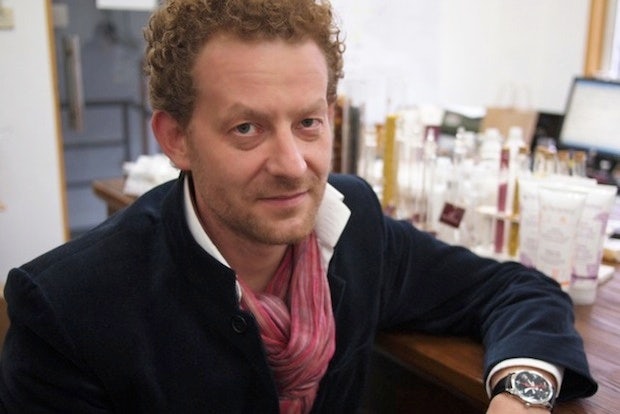"Made In China Is More A Concept Than It Is A Label"#
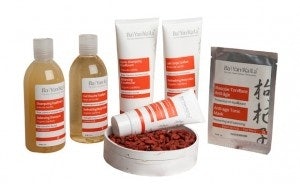
Founded in 2007 by French entrepreneur and long-time China resident
Jean Zimmermann#
, Shanghai-based
Ba Yan Ka La#
bills itself as China's first luxury skincare brand. Made in Guangzhou according to the tenets of Chinese herbology, Ba Yan Ka La's organic skin and haircare, soap and aromatherapy lines use ingredients such as goji berry, shanzha (Hawthorn fruit), Chinese mulberry, coix seed, lotus seed, and Tibetan roseroot, all of which have been cornerstones of traditional Chinese medicine for centuries.
Initially available at high-end hotel spas, in 2011 Ba Yan Ka La opened its first brick-and-mortar store on Changle Lu in Shanghai, and is currently stocked by five-star hotels such as the PuLi, the Opposite House, Grace Beijing, and the Four Seasons Shanghai. Recently, Jing Daily spoke with Jean Zimmermann to learn a little more about his brand, its unique philosophy and exotic ingredients, and how he plans to compete with other brands incorporating traditional ingredients for the China market.
Jing Daily (JD): What made you decide to leave Lane Crawford and start your own brand?#
Jean Zimmermann (JZ)#
: As an 18-year resident of China, I’ve been very involved in the local culture along the years, the history as well as the market evolution for brands. At the end of my tenure as General Manager, Operations, for Lane Crawford in mainland China, I came to realize that there was an absence of luxury and premium brands in the lifestyle (fashion, shoes and accessories), cosmetics, and design areas.
My family background is deeply rooted in alternative medicine -- healing by plants, essential oils and natural remedies and organic food (since the early 1980s). Having grown up on the border with Switzerland and Germany, two pioneering countries in terms of organic and healthy living, it seemed a natural fit for me to create a premium label using organic ingredients based in China, making full use of the long history of herbal medicine in China.
Furthermore, I believe that while the Chinese market is currently focused on foreign imported brands, we’ll see a shift of interest in the decades to come, and a desire to reconnect with traditions and culture closer to China.

JD: Ba Yan Ka La recently opened its Shanghai flagship boutique. How has the reception been thus far? Which products in particular are doing well?#
JZ:#
"Made in China" is more a concept than it is a label. As a frequent traveler to Hong Kong, taking the train crossing from Shenzhen into the SAR territory, I often see trains loaded with pigs, poultry and vegetables stopped at the border waiting for customs clearance. Much of the food served in Hong Kong is prepared with ingredients coming from mainland China. The ever-so-popular smartphone with the apple symbol is manufactured in China, and some BMW, Audi, and Mercedes-Benz models are manufactured in China. Some very prominent fashion labels or cosmetic brands also manufacture in China.
In fact, the entire world has been living with Made in China products for decades, either without realizing it or simply purposely ignoring the origin of the garments, shoes, fabrics or daily items lining the shelves of retailers worldwide. That consumer craving for cheap products has fueled the past 20 years of China’s mighty economic growth. So far China has mostly neglected its own labels, producing famous brands as an OEM.
Ba Yan Ka La has been investing over the past six years, openly claiming this made in China label, and indeed a trust issue remains both inside the Mainland and overseas. Our formulas are designed and produced in China under the supervision of a French luxury brand expert and veteran, and since we make a high-quality product, with strict quality control and operating rules, we’re winning more and more clients every day. In that regard, we are rather unique, and our client list in China -- and now in Hong Kong -- is a simple testimony that China can produce some of the best products in the world. It’s once again about patience, hard work and a lot of education with customers. These are values that we find in ancient Chinese wisdom, and that comforts us that we are on the right track.
We have so far seen great success with many items across a few lines, but the most famous line might very well be our Tibetan Roseroot (Rhodiola Rosea), which has been used by many of our prominent five-star and boutique hotel partners over the years. Launched in 2007, this line is now used by some of the most famous boutique and 5 star hotels in China, as in-room amenities. This has brought us awareness and an ever-growing number of faithful consumers.
Lately, our Ecocert Certified organic skincare ranges have also attracted growing interest from both local and overseas customers, and have become some of our signature products.
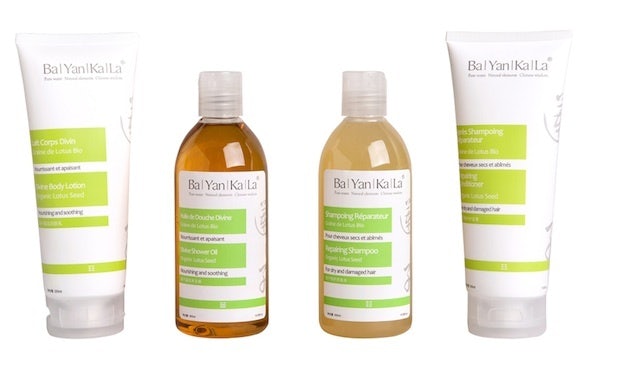
JD: Ba Yan Ka La has both a brick-and-mortar and online presence. What advantages do you see in having both?#
JZ:#
Ba Yan Ka La’s strategy is a full-price marketed product and we don’t offer discounts whether off- or online. Historically for the top 20 brands selling in China, online sales through official channels (not including illegal imports and rogue sales online on the many e-commerce platforms at a discounted price) have amounted to around five to eight percent of overall sales. Having an online presence is an important marketing channel to gain awareness, consumer understanding of the brand and its philosophy.
We must be online and present on social media, but we’re not yet able to replace the fundamental customer experience at the beauty counter, trying the products before buying. This relationship and the service provided by human beauty advisors remains very important, especially for first-time buyers and to introduce new lines and new products. I’m personally not convinced that online will ever replace the one-on-one relationship between our beauty experts and consumers, at least not for first-time clients.
With a full-price offering, our sales online inside China remain rather slow. However, we are proud to service return clients over the e-commerce platform, people who know and trust our products and don’t feel the need to visit our sales counters. We’ve registered a growing interest of consumers all over the world, and we’re now preparing to make our online sales channel global market-friendly. From inside China we are prohibited to ship any liquid or cosmetic product and that has limited our ability to serve demands from overseas.
We are currently looking at a solution to make our products and offers available globally, and plan to launch this service in April 2013.
JD: Since entering the market, what has surprised you, and what changes have you made for your 2013 strategy? What changes in the market have shaped your upcoming strategy?#
JZ:#
Our experience so far has made us aware that there is a great deal of bias towards any Chinese brand, both locally and from overseas buyers. A simple "made in China" label usually generates a lot of skepticism from potential buyers who do not understand the brand and its specificities, while a famous foreign brand manufacturing in China automatically benefits from the aura it has acquired overseas (e.g., Apple, BMW, Mercedes-Benz, Audi). Consumer education has been key to develop a clearer understanding as to who we are, how we work, what our values are and how we ensure the safe quality of our products.
So our strategy for 2013 is to focus on sharing with our clients more about what we’re doing, how we're doing it, and being transparent as to our sourcing and manufacturing process. We also plan on engaging our clients and potential clients via social media by creating original content to bring together a community of people concerned about what they put on their skin, how these ingredients interact with their metabolism -- people concerned about leading a healthier lifestyle.
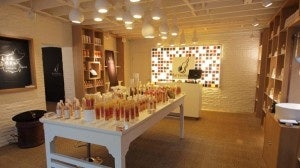
JD: You do a great deal of brand partnerships with hoteliers in China. What encouraged you to take this route? Are you aiming for more international clientele?#
JZ:#
Ba Yan Ka La started working with the hospitality industry back in 2007, when we were asked by Swire property The Opposite House in Beijing to create a unique and local hotel and room amenity concept for their selective clientele. We have since become the preferred partner for many five-star and boutique hotel concepts all over the country. This has also brought us Spa partners also seeking a high-quality product based on local philosophy.
We are continuing these partnerships further, as they have provided us with a powerful marketing vehicle to promote our brand and products while offering a world-class product to world travelers as well as local guests seeking an alternative to the major brands. We have recently confirmed partnerships with Indigo Hotel Wanchai in Hong Kong, The PuLi Hotel and Spa in Shanghai, the Four Seasons Spa Shanghai and the Huzhou Sheraton spa. We are about to release further news about additional new partnerships in China and beyond.
JD: Over the last several years, we’ve seen a growing number of beauty brands based on Asian traditional remedies infiltrate the market, such as Shanghai VIVE, Osiao, Sulwhasoo, and Shiseido. What sets Ba Yan Ka La apart?#
JZ:#
There are some important elements that set Ba Yan Ka La apart from the concepts you mention. First, we are a China-based boutique brand that does not belong to any major cosmetic powerhouse. So we are acting as a true pioneer in the local market, and are the only such concept created by a French native who has lived and gained a strong understanding of the local culture over the past 18 years.
Second, while all the names you mentioned are mostly offering skincare products, we are offering products covering skincare, bodycare, lifestyle, and home fragrances, but also fair-trade handmade products relating to the very roots of the Chinese culture. This puts us clearly and pragmatically in touch with the local population and local minorities inside China, the farmers growing active ingredients. This sets us apart from the marketing powerhouses that are either foreign-based or pushing a marketing concept with little to no relation to the sourcing of active ingredients in China.
Thirdly, to my knowledge at this point in time, I believe that we are the only China-based concept that has made a clear commitment to using clean formulas free of harmful chemicals, synthetic fragrances and artificial colorants, using 100 percent pure natural essential oils selected to work in concert with our natural active ingredients.
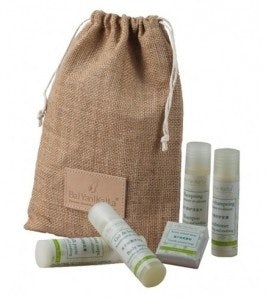
Fourth, we have partnered with a clearly identified local Chinese traditional medicine practitioner, Dr. Wang Zhiwei, to offer highly efficient formulas in our skincare and body care lines. While our research and development center is always seeking new ingredients relevant to the beauty and health of skin and hair, we are making full use of the wisdom of 2,700 years of Chinese medicine through the actual involvement of a leading figure in herbal science.
Last but not least, all of our active ingredients have received Ecocert Certified Organic certification, as we always want to remain at the cutting-edge of the best possible ingredients in our products.
As we were born by the Chinese wisdom of herbal science, we believe in a slow pace of life where health and beauty is achieved through permanent and everyday care. We anticipate the needs of a healthy lifestyle, building beautiful skin and hair by using the best natural ingredients on a daily basis.
JD: What are the company’s plans for expansion? Will we see more locations in China and internationally in the near future?#
JZ#
: Ba Yan Ka La has often been pointed out as being rather slow to develop in terms of sales revenue, and in a market defined by growth alone, we have always remained focused on our mission to deliver a high-quality product, one that stays authentic and genuinely faithful to its roots. Our latest successes, both in China and now overseas, are a testimony that brand-building and short-term revenue growth can be antagonistic targets. Having said that, we are definitely growing our market presence in terms of retail inside China this year.
In the meantime, we are pursuing some high-visibility and prominent targets in major markets overseas, in retail, hotel amenities and Spas. Asia will remain the center of our focus for the years to come, as it is the place that gave birth to our roots and philosophy.
